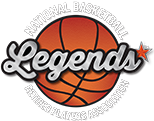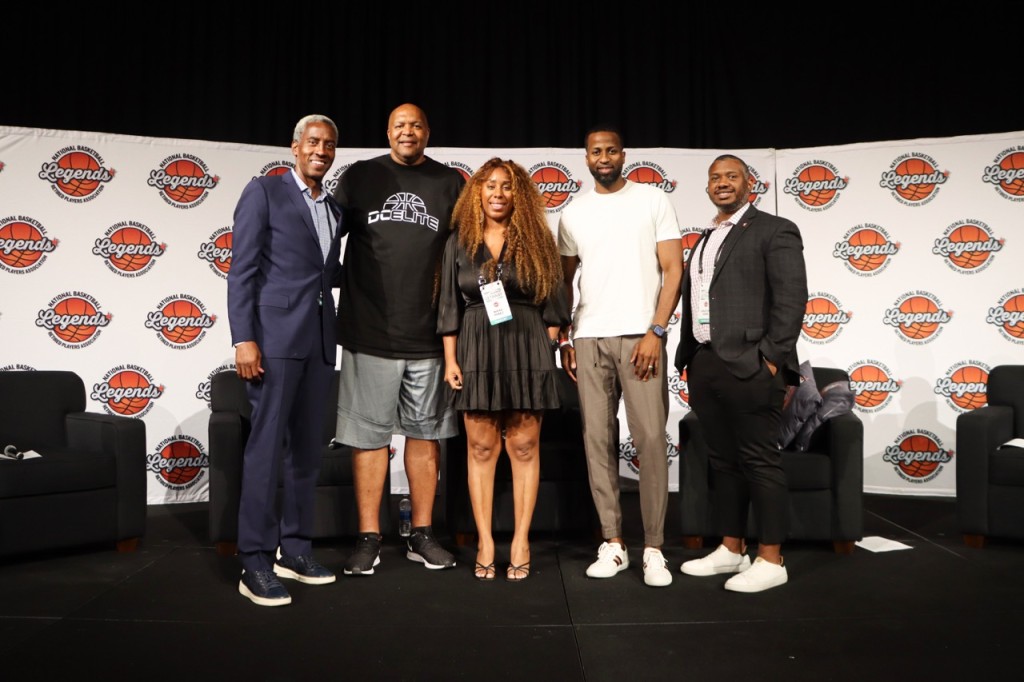By Buck Wargo (via Cannabis Now)
For the first time, the annual reunion hosted by the National Basketball Retired Players Association aimed to educate former players on emerging cannabis business opportunities.
The NBA landscape is changing when it comes to the acceptance of cannabis and its use and the association of its players doing business in the industry. A 2023 decision by the league to allow players to use marijuana and for them to invest in companies that sell CBD or marijuana has been welcomed by current players and retired ones who said it was about time.
Retired NBA players were on hand July 10-12 in Las Vegas for the annual Legends Summer Getaway where the National Basketball Retired Players Association included former NBA player Derrick Coleman and cannabis consultant Mieko Perez talking about all things cannabis and business. Both took part on a wide-ranging panel on emerging business opportunities for their members.
"It’s groundbreaking,” said former NBA player and college basketball television analyst Stephen Bardo who moderated the panel that included cannabis for the first time. “There’s a stigma surrounding it, but there’s health benefits to it and business opportunities, and the more we can demystify the process, the better.”
Investing In Health and Business
Some of the big-name former NBA players in the space include Gary Payton, John Sally and Paul Pierce. Players have their own strands, groves and other business interests.
Scott Rochelle, president and CEO of the retired player’s group, said they included the subject matter because their members are not only involved in the medicinal need of cannabis, but the business side of it as well.“
As the business side of it grows and access to it grows, we want to make sure our players are aware of all of the things available and have the necessary steps and understanding in how to get involved and be successful in it,” Rochelle said. He also shared that there are several players who are growers and learning to grow as well as former athletes with aches and pains looking at non-narcotics for treatment. He cited former players Coleman, Alex English, Isaiah Thomas, and Al Harrington as having business interests in the industry, and that the new rules will have a massive impact on existing players.
Education Is Key
Both Rochelle and Coleman emphasize the importance of staying away from narcotics for pain treatment, and how cannabis can help with that.
"There are players who have been involved in this even before the rules started,” Rochelle said. “With pain and treatment, you have to open those non-narcotic pathways so we don’t fall into oxycontin and things of that world.”
He sees the business opportunities available in the cannabis industry as a natural fit for many athletes.
"I would hope more players get involved in the space businesswise, but there’s a lot of layers to it. The regulations are different in every state, and we have to educate them and make sure they understand.,” he said. “You have to have the capital, but you do need to know how to be involved. Two to three years ago, the buzz was really high. Players wanted to know how to grow and get involved. It’s an emerging market. They’re competitors. They want to be successful.”
Coleman said he’s focused on health and wellness in the cannabis space, which emanates from a cousin with sickle cell anemia to help ease pain. He added he’s investing in a grove in New Jersey and two dispensaries in Oklahoma.
"When I saw my cousin suffering from sickle cell I had to figure out how to help him,” Coleman said. “We’re trying to create rubs, drops and even gummies. That’s why I partnered with Mieko for a year about distribution, and with the NBA opening up, it’s important to be a part of this transition to cannabis.”
Coleman, who’s been investing in the industry for about five years, said players have been involved in cannabis even before the NBA said it was okay because they’re entrepreneurs looking to make money. “The worry is that a lot of players over the years haven’t done the research and end up getting burned,” he said. “I have seen that with a lot of my guys. It’s research. You have to study.”
Coleman applauded the decision to allow players to use cannabis because when he was playing, opiods for pain management were prevalent in the locker rooms. It’s easy for people to become addicted.
"It’s great that we can sit down and have this conversation,” Coleman said. “It’s been needed. Everybody is hurting. My knee is in pain now. Those oils and ointments that you can rub in and take the inflammation out of your joints are beautiful and a conversation long overdue.”
Opportunities Abound
Bardo said with the majority of retired players being African-American and with incarceration off the table that has created “a wonderful opportunity” and hopes more get involved. He talked about how former heavyweight champion Mike Tyson and former NBA players have done well in the industry.“
There’s a lot that has been mentioned about getting into it, but it’s an arduous process,” Bardo said. “I would like to see more people get involved. Basketball players are funny animals. If we have somebody that has been through a similar process, it’s a lot easier for us to see a path. Hopefully, they take advantage of it because it’s a wide-open space.”
Perez, a legal secretary who went public in 2009 with her late son’s success with medical cannabis for treatment with autism, said she was excited to participate in the event. Products, however, shouldn’t be the beginning and ending for players to consider because there are so many other areas in the industry, she added.“
I want to help build a committee so these players, current or retired, have resources within our industry and can be on top of moving regulations,” Perez said. “Many players have entered the space, and some are successful and most of them aren’t. Most of the players don’t even know they don’t even need to touch the plant. What we want to do is build a hub for them and not have to depend on their friends but experts who show them avenues in the cannabis industry. We need investors for analytics labs, tech and educational guidance in certain states. Right now, as the cannabis industry continues to grow, so do the opportunities.”
Perez called the cannabis industry a “who you know and who you grow” space with a lot of challenges and credited Tyson with branding his product and getting the right team in place.
“It wasn’t his buddies or a friend of a friend,” Perez said. “He said he wanted to be in the space but was smart about entering it. When you leave the NBA, you need a mentor. I would like an athlete to enter this space that knows their worth."


